- Home
- Russell Blake
BLACK in the Box
BLACK in the Box Read online
BLACK in the Box
Russell Blake
Copyright 2015 by Russell Blake. All rights reserved. No part of this book may be used, reproduced or transmitted in any form or by any means, electronic or mechanical, including photocopying, recording, or by any information storage or retrieval system, without the written permission of the publisher, except where permitted by law, or in the case of brief quotations embodied in critical articles and reviews. For information, contact:
[email protected]
Published by
Contents
Books by Russell Blake
About the Author
The BLACK Series
Chapter 1
Chapter 2
Chapter 3
Chapter 4
Chapter 5
Chapter 6
Chapter 7
Chapter 8
Chapter 9
Chapter 10
Chapter 11
Chapter 12
Chapter 13
Chapter 14
Chapter 15
Chapter 16
Chapter 17
Chapter 18
Chapter 19
Chapter 20
Chapter 21
Chapter 22
Chapter 23
Chapter 24
Chapter 25
Chapter 26
Chapter 27
Chapter 28
Chapter 29
Chapter 30
Chapter 31
Chapter 32
Chapter 33
Chapter 34
Chapter 35
Chapter 36
Chapter 37
Chapter 38
Chapter 39
Chapter 40
Chapter 41
Chapter 42
Chapter 43
Chapter 44
Chapter 45
Chapter 46
Chapter 47
Chapter 48
Chapter 49
Chapter 50
Chapter 51
Chapter 52
Chapter 53
Chapter 54
Chapter 55
Chapter 56
Chapter 57
Chapter 58
Chapter 59
Excerpt from Ramsey’s Gold
Books by Russell Blake
Co-authored with Clive Cussler
THE EYE OF HEAVEN
THE SOLOMON CURSE
Thrillers
FATAL EXCHANGE
THE GERONIMO BREACH
ZERO SUM
THE DELPHI CHRONICLE TRILOGY
THE VOYNICH CYPHER
SILVER JUSTICE
UPON A PALE HORSE
DEADLY CALM
RAMSEY’S GOLD
EMERALD BUDDHA
The Assassin Series
KING OF SWORDS
NIGHT OF THE ASSASSIN
RETURN OF THE ASSASSIN
REVENGE OF THE ASSASSIN
BLOOD OF THE ASSASSIN
REQUIEM FOR THE ASSASSIN
The JET Series
JET
JET II – BETRAYAL
JET III – VENGEANCE
JET IV – RECKONING
JET V – LEGACY
JET VI – JUSTICE
JET VII – SANCTUARY
JET VIII – SURVIVAL
JET IX – ESCAPE
JET – OPS FILES (prequel)
JET – OPS FILES; TERROR ALERT
The BLACK Series
BLACK
BLACK IS BACK
BLACK IS THE NEW BLACK
BLACK TO REALITY
BLACK IN THE BOX
Non Fiction
AN ANGEL WITH FUR
HOW TO SELL A GAZILLION EBOOKS
(while drunk, high or incarcerated)
About the Author
Featured in The Wall Street Journal, The Times, and The Chicago Tribune, Russell Blake is The NY Times and USA Today bestselling author of over forty novels, including Fatal Exchange, The Geronimo Breach, Zero Sum, King of Swords, Night of the Assassin, Revenge of the Assassin, Return of the Assassin, Blood of the Assassin, Requiem for the Assassin, The Delphi Chronicle trilogy, The Voynich Cypher, Silver Justice, JET, JET – Ops Files, JET – Ops Files: Terror Alert, JET II – Betrayal, JET III – Vengeance, JET IV – Reckoning, JET V – Legacy, JET VI – Justice, JET VII – Sanctuary, JET VIII – Survival, JET IX – Escape, Upon a Pale Horse, BLACK, BLACK is Back, BLACK is The New Black, BLACK to Reality, Deadly Calm, Ramsey’s Gold, and Emerald Buddha.
Non-fiction includes the international bestseller An Angel With Fur (animal biography) and How To Sell A Gazillion eBooks In No Time (even if drunk, high or incarcerated), a parody of all things writing-related.
Blake is co-author of The Eye of Heaven and The Solomon Curse, with legendary author Clive Cussler. Blake’s novel King of Swords has been translated into German, The Voynich Cypher into Bulgarian, and his JET novels into Spanish, German, and Czech.
Blake writes under the moniker R.E. Blake in the NA/YA/Contemporary Romance genres. Novels include Less Than Nothing, More Than Anything, and Best Of Everything.
Having resided in Mexico for a dozen years, Blake enjoys his dogs, fishing, boating, tequila and writing, while battling world domination by clowns. His thoughts, such as they are, can be found at his blog: RussellBlake.com
To get your free copy,
just join my readers’ group here:
http://bit.ly/rb-jet
The BLACK Series
BLACK
Preview and purchase at Amazon
BLACK is Back
Preview and purchase at Amazon
BLACK is The New Black
Preview and purchase at Amazon
BLACK to Reality
Preview and purchase at Amazon
Chapter 1
Nine months ago, Mahmudiyah, Iraq
A hot wind blew down the dusty street near the ruins of a bombed-out building as a figure moved down the dark roadside. Clad in local garb, Abreeq Rhazali was fluent in Farsi and Arabic, as well as English, which had come in handy in his career with military intelligence – but not handy enough to earn him a prized analyst position, safely behind climate-controlled, heavily guarded walls. As a field agent stationed in Iraq for approaching three years, he despised the place’s extreme heat, constant danger, and above all, the beige dust that coated every surface like a toxic film.
But now, with some luck, he’d hit the mother lode.
At least it appeared that way. He’d been cultivating contacts among the townspeople and had tripped across an account that, when put together with other threads, would result in his long stint of misery coming to an end, with him living a life of luxury reserved for potentates and bankers.
Of course, nothing was ever easy, which was why he’d snuck out and was now making his way through hostile territory toward a destination only he knew.
Abreeq passed another partially destroyed structure, its walls crumbling from where artillery shells had blown holes in it, and slowed to eye his cell phone. On the screen was a map that he’d crafted in loving detail, using classified aerial reconnaissance images – nothing in the public domain was current, and the photographs available there were carefully filtered, most of them many years old.
He was close. Down the narrow alley, through a collection of abandoned homes. Abreeq had to admire the ingenuity, hiding in plain sight like that. He smiled to himself and picked up his pace, the bullpup submachine gun beneath his bulky top comfortably reassuring in its ability to deliver death on command.
The chatter of automatic rifle fire echoed down the street from what sounded like only a few blocks away. AK-47, he knew – the preferred weapon of insurgents and jihadists the world over. Iraq was lousy with them
, and it seemed like every local over the age of five had at least one.
The roar of a motor echoed off the collapsed walls of the surrounding homes, and Abreeq tensed. He was taking a massive gamble being in this area after dark, but he was confident he would be able to bluster his way through any confrontation. His Arabic was fluent and unaccented, and he looked exactly like countless other young men roaming the desolate streets – at least, that was his hope.
A silver Toyota Hilux rounded the corner ahead and bore down on him, its headlights blinding. As it slowed, he could make out rifle barrels jutting from the truck bed like porcupine quills. It was the local militia, who were known for their ruthlessness and who policed the poor neighborhoods where the puppet government’s laughable force was afraid to go.
“You. Hands up,” a voice called from one of the open windows.
Abreeq complied, his weapon supported by a shoulder sling beneath his garment. Two bearded men dropped from the truck bed and approached, their AKs trained on him.
“What are you doing here?” the shorter of the gunmen demanded.
Abreeq shrugged. “Scavenging. I haven’t eaten in two days. Do…do you have any food or a few coins you can spare?”
The gunman frowned and studied him. “Where are you from? I’ve never seen you before.”
“Ramallah. I came to do construction work, but the job fell through. If you need any masonry, any kind at all, for cheap, I can do it.”
“This isn’t the place to look for work.”
“Please, my brother. Just a few coins. I can’t go on like this much longer,” Abreeq pressed, his eyes hungry. “Or if you have something to eat. Anything.”
The second gunman sneered. “I should put him out of his misery,” he growled, his finger easing onto his weapon’s trigger. “He’ll probably try to rob someone.”
Abreeq’s eyes widened. “No, I swear. I’m a workman, not a thief.”
The shorter militiaman shook his head. “Why waste the bullet? He’s not our enemy.” The man reached into his pocket, withdrew a dull coin, and tossed it into the dust at Abreeq’s feet. “This isn’t an area you should be lingering. You’ve been warned. Even the rats know better than to scrounge around here.”
“Thank you. Thank you, my brother,” Abreeq said, slowly lowering his hands. The shorter gunman was turning away when the younger man called out to him.
“Look at his shoes. He’s no laborer.”
“These? I found these in town…” Abreeq said, and stooped to pick up the coin. The younger shooter’s eyes narrowed at the obvious lie as Abreeq’s other hand slid beneath a slit in his robe; and then Abreeq was rolling on the ground, his weapon spitting rounds. Three slammed the first gunman back as the shorter one raised his rifle, and then several bullets sheared half that shooter’s face off.
The truck engine groaned as it rolled toward Abreeq, but he didn’t pause, emptying his gun through the windshield at the approaching threat. The Hilux coasted toward a wall and slammed into it as Abreeq ejected his spent magazine and slapped another into place, eyes searching for more militia.
A head poked over the bed, and he strafed the thin sheet metal on the side of the truck. A scream wailed from the rear, and then the street fell silent. Abreeq stood slowly and neared the vehicle, his gun at the ready, and only lowered it when he saw two dead men sprawled in the bed. The driver and passenger were barely recognizable in the cab, the interior painted with blood.
His gaze swept the street. He was alone.
The shooting would draw no attention – the region had been chaotic ever since the Americans had overthrown Saddam. Nocturnal gun battles were a regular occurrence as different factions settled scores, fought for control of neighborhoods, and tried to protect themselves. The section he was in was uninhabited, so the likelihood of another patrol coming across this one anytime soon was remote.
Still, Abreeq wasn’t taking any chances. The boots that had given him away to the militiamen thumped against the cracked pavement as he ran toward the alley, his breath coming in rasps as he pushed himself. He wanted to be in and out as quickly as possible – this was only a reconnaissance run, to confirm what he’d need to return with at a later date.
There.
He stopped running as he drew closer to the remains of a mosque. He squinted in the gloom and spied a gap in the rubble that had been the front façade. As he made his way toward it, his heart jackhammered in his chest. Two long years of painstaking research had come to fruition, and the mosque was exactly where he’d been told it would be during one of the impromptu field interrogations he’d conducted in his unofficial quest.
Abreeq paused at the threshold of the decimated entrance and peered inside, instinctively raising the ugly snout of his weapon as he studied the ruined interior. He saw what he was looking for on one intact wall and took a cautious step into the rubble, his pulse thudding in his ears.
The snap of the tripwire was the last thing he heard, and then he was flying through the air, the IED blast knocking the breath from his lungs a nanosecond before vaporizing him. When the smoldering remains of his torso thudded against the ground, there was nobody around to appreciate the irony of his having made it unscathed through countless deadly encounters only to die mere footsteps from his objective.
Ten minutes later, a mangy dog nosed at Abreeq’s remains and then drew back into the shadows and continued on its way, even in its emaciated condition uninterested in feasting on the dead American.
Chapter 2
Five months ago, Los Angeles, California
Daojiong Chang emerged from the customs area of Los Angeles International Airport into the arrival terminal, blinking groggily. The long flight from China had been too rough for him to get any sleep. He glanced around, all of his possessions in the single suitcase he carried, and spotted another Chinese man wearing a multicolored leather racing jacket – his contact in this new country. Daojiong made his way to where the man stood and set his bag down beside his feet.
The man looked him over and offered a nod. Daojiong had been coached and so didn’t make any gestures.
The man grunted and eyed the bag. “Is that it?” he asked.
“Yes.”
“Follow me to the parking area.”
Daojiong did as instructed, and when they were both in the man’s car, Daojiong slid sunglasses on as the driver paid the attendant and merged into traffic.
“I have all your papers. How’s your English?” the man asked in that language, switching from Cantonese.
“Okay. Been practice.”
The driver gave him a sour look. “Been practicing, not practice. From now on we will only speak in English. These people place a big value on assimilation. Fitting in. You’ll hear that a lot.”
“Where we go?”
The driver shook his head. “Where are we going, not where we go. Jesus.” He paused and changed lanes, edging into the middle one as he rolled east toward the 405 freeway. “I’m to show you your new home. There are a bunch of you there. Tomorrow will be your first day of work. I got you a job – vouched for you. To anyone that asks, you’re my cousin. We’ve created new papers, an employment history, the works.”
“That good.”
“Your name is now Tom. You’ve been in the U.S. for a year and a half. You don’t talk much, keep to yourself.”
Daojiong nodded. He’d been briefed by his masters in China. “Tom. Okay. Good name. What it mean?”
“Doesn’t mean anything. It’s not like back home – names here don’t.”
The car swung left and powered onto the freeway, the late morning traffic bearable after a rush hour that was an exercise in madness. Cars growling along in either direction would sit gridlocked for hours, starting at six a.m. and stretching to ten, the commute one of the worst in the world. The driver cut into the car-pool lane, which was nearly empty – in Southern California, most cars contained only a single passenger, usually on their cell phone earpiece for the entire trip.
>
“Nice car,” Daojiong said, to make conversation.
The driver smiled for the first time. “Thanks. I like it.”
“Fast, yes?”
“Very.” He paused. “Play your cards right and you’ll have one in no time.”
“That would be nice.”
The trip south took forty minutes. Soon after exiting the freeway they entered a run-down residential area, and the driver stopped in front of a single-story ranch house that looked like it hadn’t been painted since the sixties. “We’re here.”
Daojiong nodded. His surroundings were unimportant to him. He was in the U.S. to do his masters’ bidding, and to blend in as well as possible while doing it. The Chinese triads had long been operating in the United States, but lately had been making a major push into select states, solidifying their territories. They partnered in Southern California with the Vietnamese street gangs, who were even more vicious than the Chinese. Daojiong was an enforcer for one of the largest triads in Beijing. His role would be to act as muscle, supporting the gang’s drug and human trafficking rings – there was a large market in the U.S. for comely young Chinese females from the poor provinces, as well as for the heroin and meth produced in the Golden Triangle.
The triads also preyed on local Chinese-owned businesses, demanding protection money from a network of specialty shops, markets, and restaurants whose proprietors knew too well the cost of disobeying. In the Chinese community, the payment was viewed as an expected cost of doing business, just as in the other immigrant neighborhoods with predominantly Hispanic or Asian populations. The triads also engaged in lucrative loan-sharking to those looking for expansion capital, and were part owners in many legitimate enterprises they used to launder their criminally originated gains into clean money, which they then used to purchase real estate – always viewed as a safe long-term investment by a culture that was accustomed to sitting on residential investments for decades.
The driver slid from the car and led Daojiong to the house. Daojiong noted the dying lawn and poorly landscaped grounds without comment. After a knock on the front door, another Chinese man opened it and stared impassively at Daojiong. The driver made the introductions and the man stepped aside, allowing them to enter.

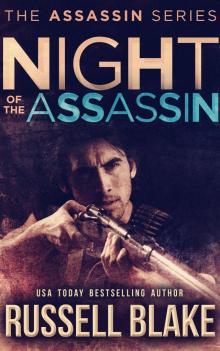 Night of the Assassin
Night of the Assassin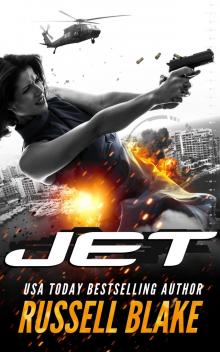 Jet
Jet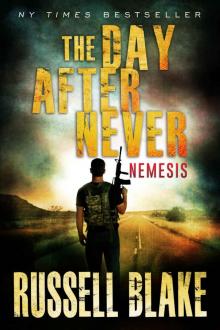 The Day After Never - Nemesis (Post-Apocalyptic Dystopian Thriller - Book 9)
The Day After Never - Nemesis (Post-Apocalyptic Dystopian Thriller - Book 9)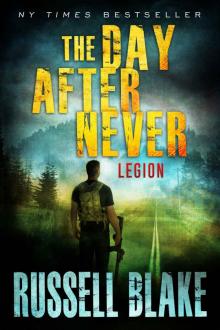 The Day After Never - Legion (Post-Apocalyptic Dystopian Thriller - Book 8)
The Day After Never - Legion (Post-Apocalyptic Dystopian Thriller - Book 8)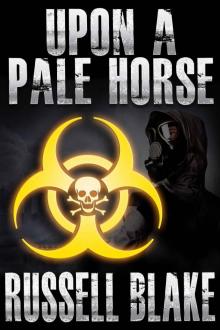 Upon A Pale Horse (Bio-Thriller)
Upon A Pale Horse (Bio-Thriller)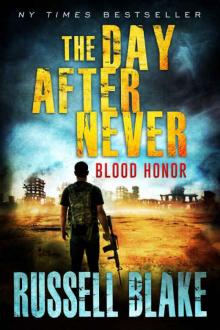 The Day After Never (Book 1): Blood Honor
The Day After Never (Book 1): Blood Honor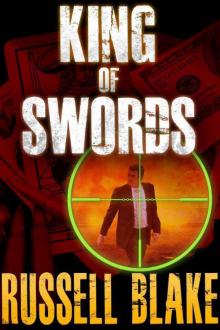 King of Swords a-1
King of Swords a-1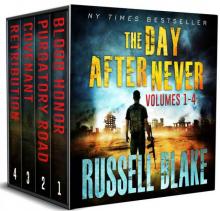 The Day After Never Bundle (First 4 novels)
The Day After Never Bundle (First 4 novels)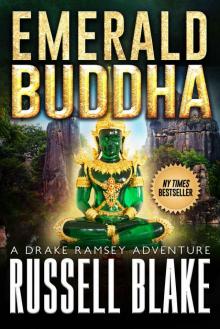 Emerald Buddha (Drake Ramsey Book 2)
Emerald Buddha (Drake Ramsey Book 2)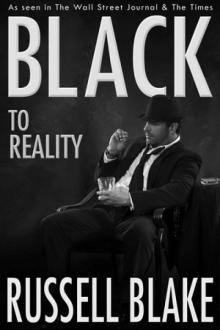 BLACK to Reality
BLACK to Reality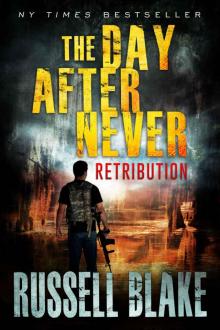 The Day After Never - Retribution (Post-Apocalyptic Dystopian Thriller - Book 4)
The Day After Never - Retribution (Post-Apocalyptic Dystopian Thriller - Book 4)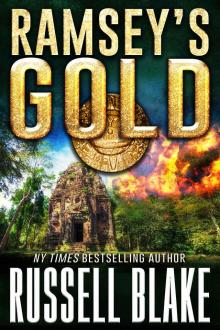 Ramsey's Gold (Drake Ramsey Book 1)
Ramsey's Gold (Drake Ramsey Book 1)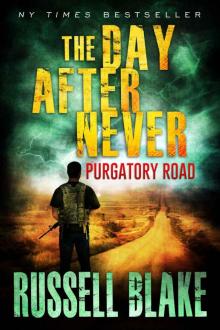 The Day After Never (Book 2): Purgatory Road
The Day After Never (Book 2): Purgatory Road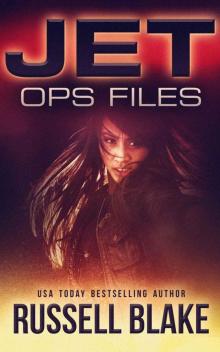 JET - Ops Files
JET - Ops Files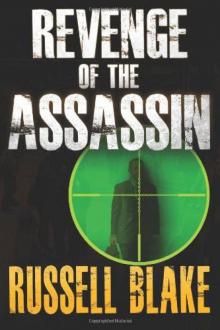 Revenge of the Assassin a-2
Revenge of the Assassin a-2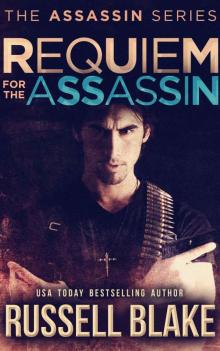 Requiem for the Assassin - 06
Requiem for the Assassin - 06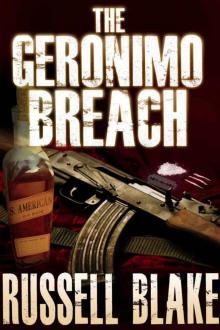 The Geronimo Breach
The Geronimo Breach Sahara
Sahara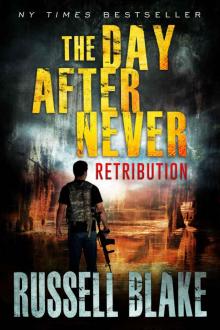 The Day After Never (Book 4): Retribution
The Day After Never (Book 4): Retribution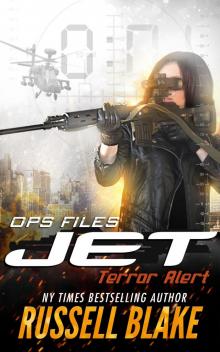 Ops Files II--Terror Alert
Ops Files II--Terror Alert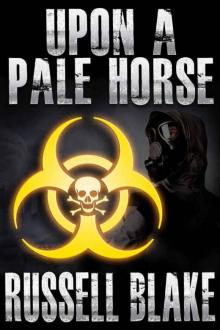 Upon A Pale Horse
Upon A Pale Horse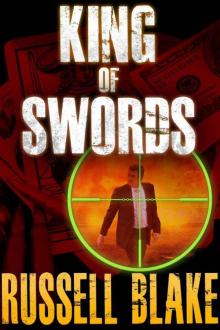 King of Swords (Assassin series #1)
King of Swords (Assassin series #1) A Girl Apart
A Girl Apart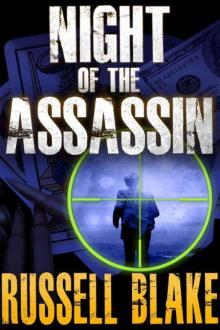 Night of the Assassin: Assassin Series Prequel
Night of the Assassin: Assassin Series Prequel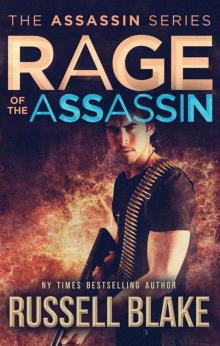 Rage Of The Assassin
Rage Of The Assassin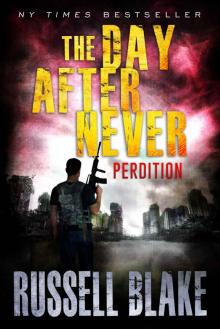 The Day After Never - Perdition (Book 6)
The Day After Never - Perdition (Book 6)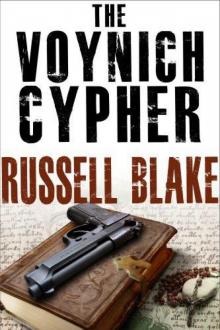 The Voynich Cypher
The Voynich Cypher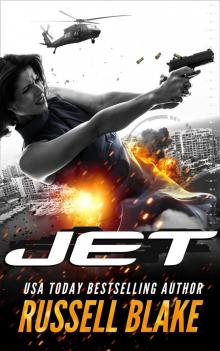 JET, no. 3
JET, no. 3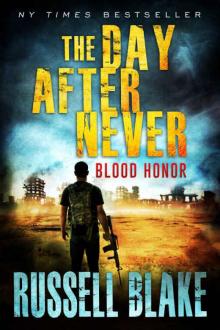 The Day After Never - Blood Honor (Post-Apocalyptic Dystopian Thriller)
The Day After Never - Blood Honor (Post-Apocalyptic Dystopian Thriller)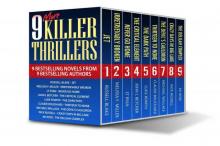 9 More Killer Thrillers
9 More Killer Thrillers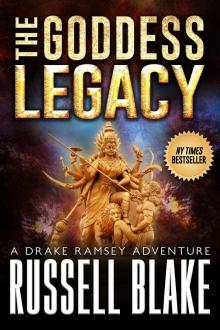 The Goddess Legacy
The Goddess Legacy Fatal Exchange
Fatal Exchange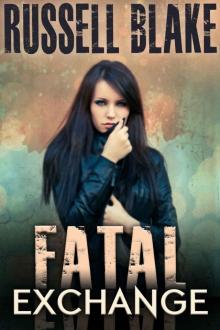 Fatal Exchange (Fatal Series Book 1)
Fatal Exchange (Fatal Series Book 1)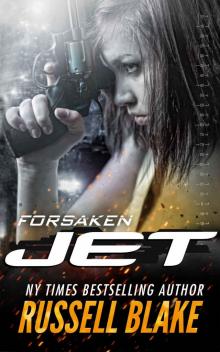 JET - Forsaken
JET - Forsaken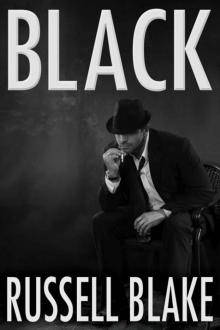 Black
Black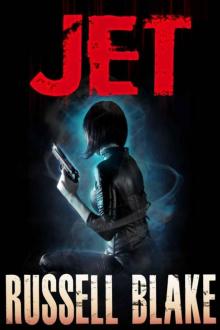 Jet j-1
Jet j-1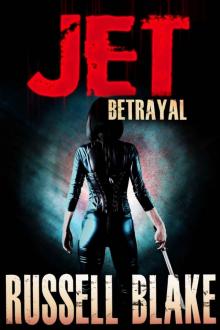 Betrayal j-2
Betrayal j-2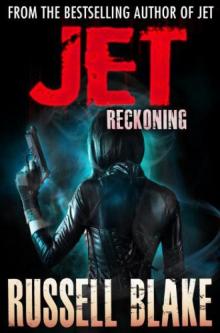 Jet 04: Reckoning
Jet 04: Reckoning Jet 03: Vengeance
Jet 03: Vengeance Fatal Deception
Fatal Deception A Girl Betrayed (A Leah Mason suspense thriller Book 2)
A Girl Betrayed (A Leah Mason suspense thriller Book 2)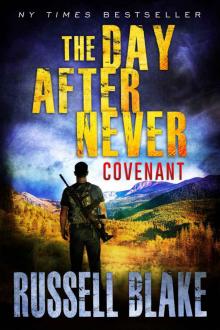 The Day After Never - Covenant (Post-Apocalyptic Dystopian Thriller - Book 3)
The Day After Never - Covenant (Post-Apocalyptic Dystopian Thriller - Book 3)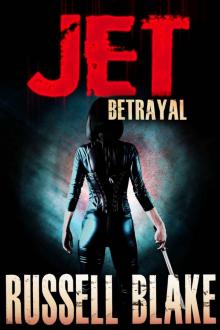 JET II - Betrayal (JET #2)
JET II - Betrayal (JET #2)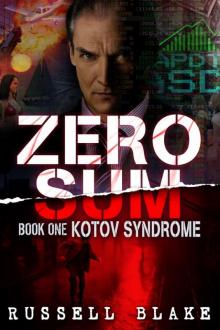 Zero Sum, Book One, Kotov Syndrome
Zero Sum, Book One, Kotov Syndrome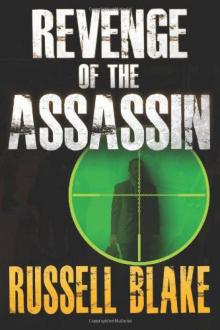 Revenge of the Assassin
Revenge of the Assassin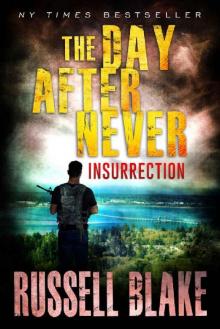 The Day After Never - Insurrection (Book 5)
The Day After Never - Insurrection (Book 5)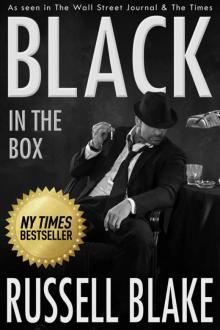 BLACK in the Box
BLACK in the Box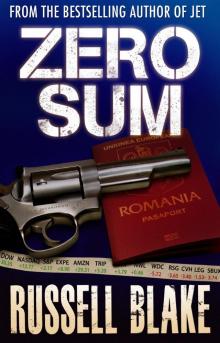 Zero Sum
Zero Sum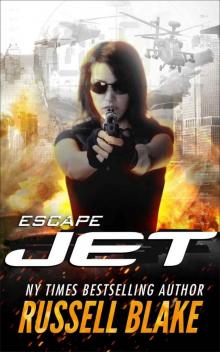 JET - Escape: (Volume 9)
JET - Escape: (Volume 9)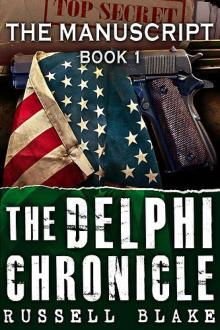 The Manuscript
The Manuscript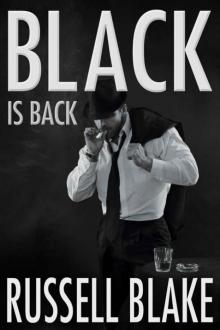 BLACK Is Back
BLACK Is Back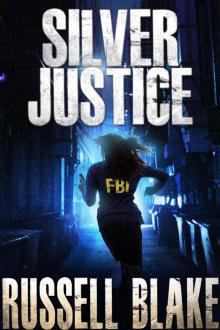 Silver Justice
Silver Justice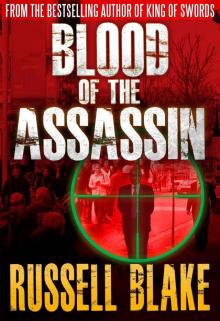 Blood of the Assassin
Blood of the Assassin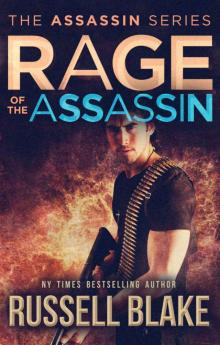 Rage of the Assassin: (Assassin Series #6)
Rage of the Assassin: (Assassin Series #6)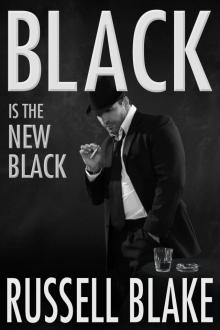 BLACK Is the New Black
BLACK Is the New Black